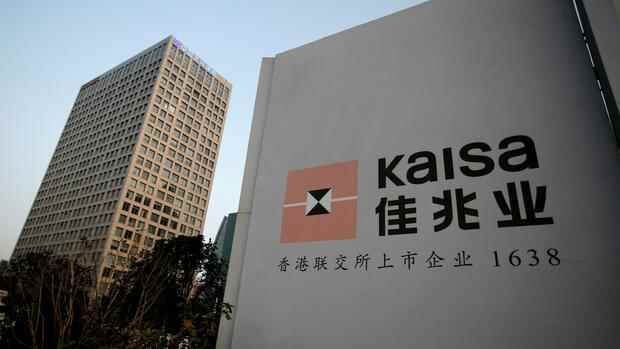The company will have to service around $ 3.2 billion in senior offshore bonds over the next twelve months.
(Photo: Reuters)
Shenzen Trading in shares of the Chinese construction company Kaisa Group Holdings and three of its units was suspended on Friday. The company previously announced that a subsidiary had missed payment for a financial product. According to a report by the Hong Kong Stock Exchange, the shares of Kaisa were blocked accordingly on Friday.
The Shenzhen-based parent company announced in a statement on Thursday that it was facing an unprecedented liquidity squeeze due to the challenging real estate market and rating downgrades. To raise money, Kaisa wants to accelerate the sale of shares.
Kaisa’s troubles come amid a worsening liquidity crisis in the Chinese real estate sector. Evergrande, once China’s top-selling developer, suffers from debt of more than $ 300 billion. Last week, Evergrande was only just able to avert a default for the second time. The next test will follow on November 10, when payments of more than $ 148 million will be due.
Kaisa is number 25 among Chinese property developers in terms of the number of apartments sold. The company will have to service around $ 3.2 billion in senior offshore bonds over the next twelve months. As early as November 11th and 12th, $ 59 million in interest payments are due. Among real estate developers, only Evergrande will have to service more foreign debt in the coming year.
Top jobs of the day
Find the best jobs now and
be notified by email.
Kaisa’s credit rating was downgraded by rating agencies last week. The Kaisa Finance headquarters was almost empty on Thursday morning, with several police vehicles stationed in front of the building.
The real estate sector is an important engine of China’s economic growth. Many highly indebted real estate developers have sold so-called wealth management products to small investors and lured them with high interest rates. This enabled the corporations to bypass the Beijing government’s borrowing restrictions.
More: The Evergrande case is also a lesson for investors.
